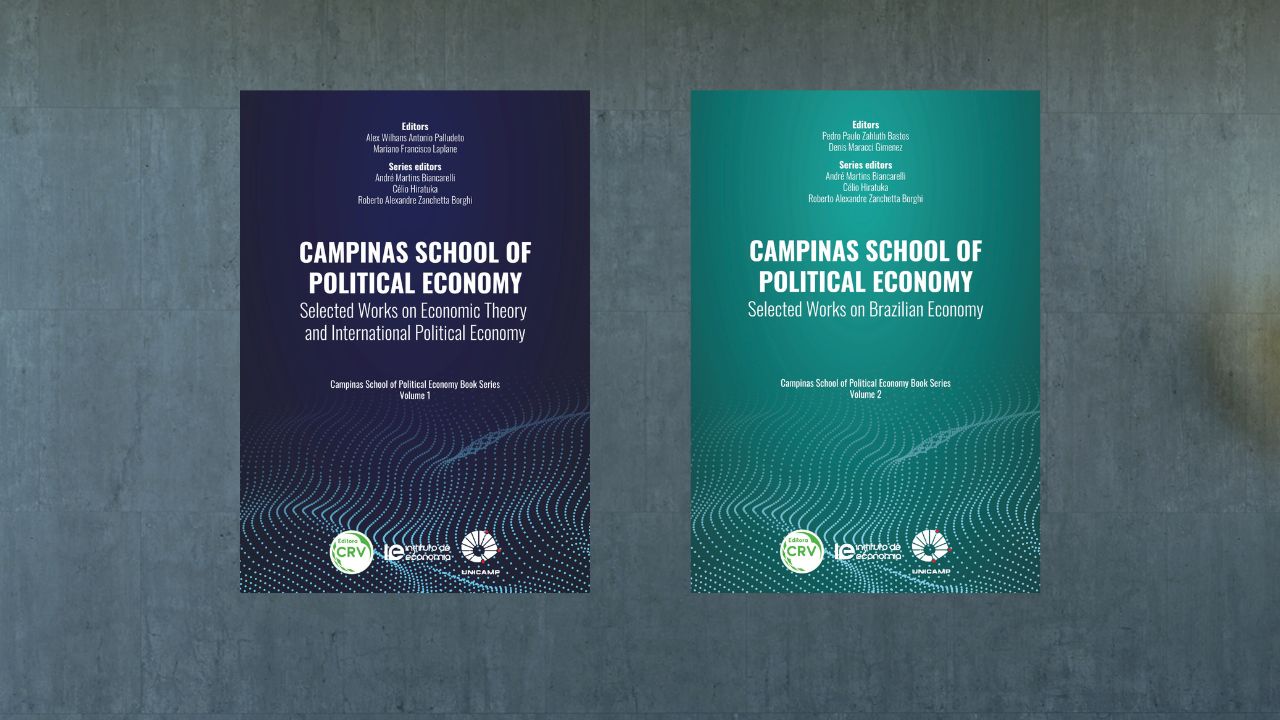The Institute of Economics at the University of Campinas (Unicamp) is pleased to present to the international community the two volumes of “Campinas School of Political Economy”, a careful selection of key manuscripts that contributed to the formation of our intellectual history over time.
The Institute was born in the late 1960s as the Department of Economic and Social Planning of the Institute of Philosophy and Human Sciences of the recently established University of Campinas at that time. Since its beginning, the Institute of Economics has represented an intellectual project rather than only an academic body. The starting point was the original perspective of the Latin American Structuralist School, which emerged in the late 1940s with the seminal work of Raúl Prebisch and represented an authentic and autonomous way of thinking about development in this region of the globe – an early preview of the current “decolonizing economics” trends. Two decades later, a group of young economists brought together in an infant university during the worst phase of the civil-military dictatorship in Brazil followed the same path, but adding novelties and criticisms to the ECLAC’s approach. Trying to understand the specificities of the origins and the development of capitalism in Brazil, these collective discussions were able to mobilize different theoretical inputs and tools, always with creativity, accuracy, and independence. The result was an original interpretation, which throughout the following five decades was updated, renewed, and transformed not only by the changes and challenges of the Brazilian economy but also by the evolution of both the international economy and the economic thinking in Brazil and worldwide.
For a long time, most of these contributions were written and published only in Portuguese, which is frequently a problem both for international students attending courses in Campinas and for the outward circulation of these ideas. Long-awaited, these two volumes have tried to capture, organize, and translate some of the most important chapters of what is sometimes referred to as “Campinas School”. Each of the two volumes – whose division is thematic and follows a chronological sequence – has its own presentation and contextualization of choices. The list of manuscripts is neither exhaustive nor consensual, but the effort is, at least, a first step in spreading such key ideas.
Institutionally, we would like to thank all people involved in this project of translating original texts. Professors Alex Wilhans Antonio Palludeto and Mariano Francisco Laplane are the editors of the first volume, dedicated to theoretical and international topics. The second volume, whose texts focus on the formation and contemporary Brazilian economy, is organized by professors Pedro Paulo Zahluth Bastos and Denis Maracci Gimenez. Professor Roberto Alexandre Zanchetta Borghi assumed a fundamental organizing task at a later stage of the project, and professor Rosangela Ballini was also essential all the time. Professors Célio Hiratuka and Carolina Troncoso Baltar also made important contributions to this project. Our assistants Geisa Aguiari, Francisco Orlandini, and Greisiane da Silva also played a fundamental role in different steps of the process. Finally, we extend our gratitude to all the authors of the texts for their collaboration.
More than an important step on the unavoidable path of academic internationalization, these books are an institutional invitation to the dialogue, collaboration, and “cross-fertilization” of ideas with other theoretical and empirical perspectives as well as researchers around the world.
Enjoy the books!
CAMPINAS SCHOOL OF POLITICAL ECONOMY: Selected Works on Economic Theory and International Political Economy - Volume 1
CAMPINAS SCHOOL OF POLITICAL ECONOMY: Selected Works on Brazilian Economy - Volume 2
Best regards,
André Biancarelli
Director of the Institute of Economics – Unicamp (2019-2023)
Campinas, Brazil, September 2022.
 English
English




 O Instituto de Economia da UNICAMP foi criado em 1984 e tem por finalidade a promoção do ensino e da pesquisa na área de Economia.
O Instituto de Economia da UNICAMP foi criado em 1984 e tem por finalidade a promoção do ensino e da pesquisa na área de Economia.
